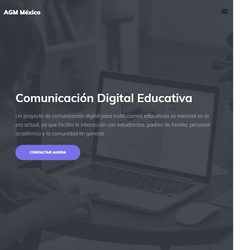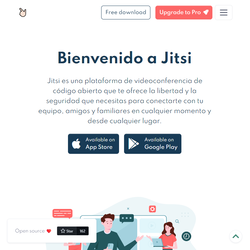
Digital Education
Over the past decade, Latin America has stepped up its efforts to close the digital divide, a critical challenge affecting social equity, economic development, and access to fundamental rights such as education and health. Several countries in the region have launched ambitious projects aimed at extending Internet access to millions of people, with a particular focus on rural areas and marginalized communities. These initiatives, which combine technological innovation and public policies, are transforming connectivity into a key driver for social inclusion and sustainable progress.
Here are three flagship projects that are setting the tone in the region:
Mexico: Federal Electricity Commission, Telecommunications, and Internet for All
In Mexico, Internet access has been a major challenge, especially in rural communities, where telecommunications services are often limited or nonexistent. To meet this challenge, the federal government launched the Federal Electricity Commission, Telecommunications and Internet for All program, an initiative that, to date, has managed to establish 91,000 wireless Internet connection points throughout the country.
The project's main objective is to ensure that the Internet is a public good accessible to all. It is designed to prioritize historically excluded communities, such as indigenous peoples and remote locations, where connectivity not only represents access to technology, but an essential tool to improve the quality of life.
The benefits of this initiative are diverse:
- It facilitates access to online education, especially in the post-pandemic context.
- It improves the provision of health services through telemedicine platforms.
- Promotes the digitalization of government services, streamlining procedures and reducing costs.
In addition, the project seeks to ensure that connection points have continuous maintenance and that communities can make the most of the opportunities offered by digital technology.
Colombia: Digital Centers
In Colombia, the Digital Centers program is transforming Internet access in vulnerable rural and urban communities. With an ambitious goal of creating up to 14,750 public Wi-Fi connectivity centers, this initiative focuses on closing the technological gaps that limit development and social inclusion.
These centers are designed to be more than connection points:
- Educational spaces: The Digital Centers offer workshops and training in digital skills, promoting continuous learning and preparing citizens for an increasingly digitalized labor market.
- Entrepreneurship areas: The aim is to empower small business owners and local entrepreneurs by providing them with access to technological tools and online platforms to expand their businesses.
- Social inclusion facilitators: By connecting remote communities, these spaces also help strengthen citizen participation and reduce inequalities between regions.
The implementation of the program is accompanied by strategic alliances with the private sector, educational institutions and non-governmental organizations, ensuring its long-term sustainability.
Brazil: Connected North Project
In a country as vast and diverse as Brazil, connecting remote regions represents a monumental logistical challenge. That's why the government launched the Connected North Project, an initiative that is bringing high-speed Internet to isolated communities, particularly in the Amazon region.
The project stands out for its innovative approach: the use of Amazonian riverbeds as routes to install fiber optic cables. This method not only reduces costs and minimizes environmental impact, but also allows large areas of territory to be covered efficiently.
The benefits of the Connected North Project include:
- Connecting schools, hospitals and community centers, significantly improving the quality of educational and health services in these regions.
- Fostering local economic development, by facilitating e-commerce and the integration of these communities into national and international markets.
- Promote environmental and social sustainability by reducing dependence on polluting technologies and fostering a more inclusive connectivity model.
This project also highlights the importance of cooperation between the public and private sectors, as well as Brazil's commitment to the UN Sustainable Development Goals, especially in terms of quality education, reducing inequalities and climate action.
The collective impact: a more connected future
The efforts of Mexico, Colombia and Brazil are not isolated cases, but part of a regional movement that seeks to ensure that no one is left out of the digital revolution. These projects represent a shared vision of a more equitable future, where access to the Internet is considered an essential right.
In addition to improving connectivity, these initiatives address structural challenges such as social exclusion, lack of access to basic services and economic inequalities. By connecting remote communities and empowering their inhabitants, Latin America is laying the foundations for more inclusive and sustainable development.
As these projects move forward, their impact is expected to inspire other countries in the region to adopt similar models, thus strengthening a network of innovation and progress that benefits millions of people. Connectivity not only transforms lives, but also propels the region towards a more competitive and globalized future.



